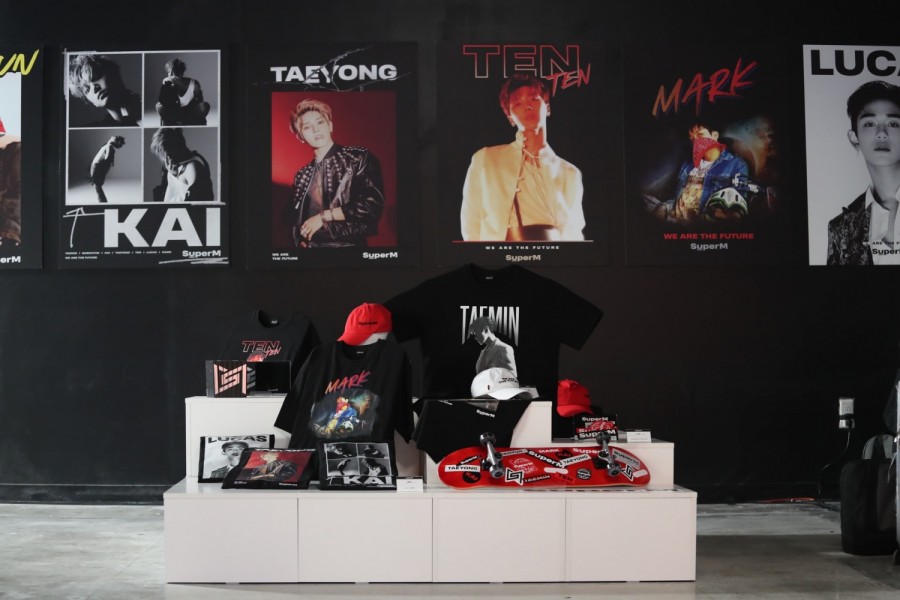How K-Pop's New-found Global Relevance Derives from NFTs

Since the inception of the modern music industry as we know it, there have been thriving parallel markets for a milieu of memorabilia; autographed items, vinyl records, t-shirts, posters etc. Throw some sentimental relationship with a pop star into the mix, and any otherwise unremarkable minutiae can well become worth millions of Won.
For instance, a photocard from BTS star Jungkook holds the record for the most expensive photocard ever sold in K-Pop, after it auctioned on eBay for nearly 4 million Won. For a while now, the value of these pieces of memorabilia has been described as the sense of ownership inspired by their tangibility.
Think of it-why else would a fan who's streamed his favourite album over and over again have no problem shelling out thousands, just to buy a vinyl edition of the same album he already has digital access to?
Loads of people were caught by surprise when these memorabilia began to be made into NFTs and consequently sold for astronomical amounts. With K-Pop being one of Korea's biggest industries and all metrics indicating annual exponential growth mostly due to fast-paced forward-thinking, it comes as no surprise that the industry has quickly latched on.
Still, the questions linger on the minds of NFT spectators and even insiders. How do intangible memorabilia retain their value as NFTs? How does this affect pop stars themselves? What does this mean for the industry at large? Well, stay with me; in this article,we'll haul off the full insider scoop on the relationship between NFTs and the K-Pop industry, and how NFT portends to shape the K-Pop Industry.
What Are Nfts?
The term "NFT" is an acronym that stands for Non-Fungible Token.
Think of it as a blockchain-based store of value or valuable digital files. They are called non-fungible, because the files that they contain-unlike regular cryptocurrencies-are not interchangeable with any other assets.
How is that? Well, regardless of its location on the blockchain or transaction history, one bitcoin will always be interchangeable with one bitcoin. So, if for some reason, you sell your bitcoins, you can always purchase an exact quantity from anywhere. NFTs on the other hand cannot be. Once you relinquish ownership of a particular piece, you have to repurchase exactly that same piece if you want to regain ownership.
So, what are NFTs? Theoretically, any digital file can be made into an NFT; videos, GIFs, audio files, text etcetera. As long as it can be uploaded onto the blockchain, it can be made into an NFT. This way, K-Pop artists have an opportunity to not only directly sell autographed memorabilia, but also audio and video files of their music.
However, contrary to what you might suggest, the digital files are not the NFTs themselves. Just like on the regular internet, files on the blockchain usually have specific and unique addresses. These addresses are called tokens.
Summarily, when you purchase an NFT, you're in essence purchasing the right to ownership and certificate of authenticity of the address of your chosen digital file on the blockchain. Think of it as a deed to a few acres of land on Mars.
How Adoption Has Been So Far
Following slow growth over the past couple of years, the NFT industry has grown tremendously in the past year, partly aided by the pandemic and associated restrictions. In July this year, OpenSea, the most popular NFT marketplace recorded about 389 Billion Won ($325 Million) in transaction volume.
In August, it recorded nearly 4.1 Trillion Won ($3.4 Billion) from over 2 million NFT transactions, a growth of about 946% in only a month. For not a few artists, NFT sales represent a window to new income levels that would have otherwise taken them years to reach.
Although it might take some time to reach the ceiling set by Christie's auction of a Beeple artwork for $69.3 Million, NFT growth in South Korea has not been slow either. Various artists ranging from cartoonists, animators and others have successfully earned millions in NFT sales. Earlier this year, Mari Kim sold a piece named "Missing and Found" for the equivalent of 600 Million Won. Following the appreciation in the value of both the artwork and Ethereum cryptocurrency, the same piece is now worth well over 1.4 Billion Won only a few months after.
Left with no option but to explore new revenue streams following pandemic era restrictions on concerts, private shows, pop-up shops, among many other traditional income sources, many K-Pop stars and the companies managing them have also ventured into minting and selling NFTs.
Although the prevailing sentiment among the fans Is a preference for physical memorabilia that they can display in frames and shelves in their homes, the K-Pop industry continues to forge ahead, hoping to cause a historic change in memorabilia and collector culture in South Korea.
JYP Entertainment, the industry colossus behind such bands as Boy Story, Stray Kids, Itzy, and NiziU, blazed the trail by going into an agreement with Blockchain firm Dunamu to set up an NFT trading platform ostensibly to market merchandise from the artists and bands under their label. Brave Girls, another pop group, joined forces with UpBit, another South Korean Cryptocurrency exchange to mint and sell limited-edition merchandise as NFT collections. Another singer, Se7en, also released NFT versions of his latest single.
While we may not be able to predict how these activities are going to pan out, one thing is for sure-in the coming months, we're definitely going to see even more NFT activity in the K-Pop industry with more artists, bands and groups looking to take advantage of the technology to increase their incomes.
How do artists and the industry in general stand to gain?
One of the standout benefits of NFT marketplaces for artists is that it cuts out middlemen, allowing them to earn more from their work. Over the years, industry players have lamented the increasing devaluation of music. CD and Vinyl sales have been replaced by streaming services, which then take sizable cuts of the already depleting revenue.
Where an artiste selling CDs for 100 Won could make 10 Million Won from 100,000 CDs, they now have to settle for only about 900,000 Won in streaming revenue from 100,000 streams. With NFTs, music ownership can be restored, and fans can resume buying music directly from their favourite artists, bypassing shylock record labels and streaming services. Besides, by including smart contracts that remit percentages of future sales, artists may increase their earning potential even further.
There's also the issue of authenticity. Earlier, we mentioned that an NFT is basically a certificate of authenticity. Before now, there was hardly any way to verify the authenticity of high-value memorabilia. The best that auction houses could do was trace the history of ownership of items for sale by word of mouth or ownership certificates, all easily forged.
As you'd expect, a handful of people have made a career out of fooling people into buying fakes. NFTs fix this. Since the blockchain is a public ledger that displays the transaction history of every file stored in it, anyone can verify the authenticity of whatever they want to buy by tracing its history in the blockchain.
However, all of these will not matter in the absence of willing buyers. Luckily, the K-Pop industry is worth trillions of Won, raking in 6.1 Trillion Won and $562 Million in exports last year and has some of the biggest fanbases in the entire world, generating billions of traffic on social media platforms.
With millions of loyal fans, both home and abroad, ready to spend this much money on merchandise from their favourite artists, there is no telling how huge an opportunity K-Pop stars have here, to maximize creativity and income.
Problems
It should be noted that the NFT story is not all rosy. It's a nascent industry and is still dogged by quite a few teething problems. For one, there is still a high barrier of entry for artists, in the form of gas fees and such. So, smaller artists with fewer resources may find it more difficult to break into the market, compared to established acts.
One may also find out too late that not all NFTs get sold for the outrageous millions that make the news. Usually, to generate the buzz that translates to rewarding sales, artists need to have existing influence in the K-Pop industry, once again constituting an entry barrier to smaller artists.
Another problem of NFTs and Cryptocurrencies, in general, is the sheer amount of electricity required to power every small transaction. Artists may find themselves consuming sizable megawatt-hours of electricity in the few seconds that it takes to mint just one NFT.
All of this is not environmentally sustainable, and if the industry is to grow further, solutions have to be found.
The NFT revolution presents exciting new opportunities for the music industry in Korea. Artistes and their companies have the chance to earn much more revenue than they ever have, with less industry complexity.
The fans, on the other hand, will find even more ways to own authentic pieces of their favourite artists without having to go to the ends of the world for it. Properly harnessed, the payoffs may be limitless.
However, the problem of environmental unsustainability cannot be ignored. Also, all of the benefits that we have listed may not be fully harnessed if the high barrier of entry remains, preventing smaller artists who form the majority of the industry from gaining access.
The faster these issues are resolved, the sooner the K-Pop industry can fully set out on the path of unimaginable growth offered by this technology.
Frequently asked questions (FAQs)
Below, we provide answers to some of the most frequently asked questions about NFTs, especially concerning the Korean music industry.
1. Can I make money off of NFT ownership?
Yes, depending on who you are and your position in the ecosystem. If you are an artist looking to sell merchandise, there are endless possibilities. As long as you can do the self-branding and marketing work required to generate enough buzz to direct buyers to your collection.
You cna also put smart contracts in place to earn a commission every time your work is resold. Besides, cryptocurrency exchanges have recently begun experimenting with an NFT model that produces "dividends". What better way to create residual income?
On the other hand, fans and collectors can also hope to earn income from NFTs. There is a lot of action in the market right now, a huge chunk of which consists of resales.
There are many enthusiasts taking advantage of the flurry of activity to flip NFTs for profit. However, don't just jump into the fray expecting to flip just about any NFT for a huge profit. Do your research and confirm the value of any piece you're interested in before you buy it.
2. How can I create awareness for my NFTs
Online platforms like Twitter and Reddit have emerged as the favourite places to market NFTs. If you're an established act, you probably do not need to do much work, as your star power may be enough to generate traffic.
However, if you're a lesser-known artist, to properly maximize the revenue potential of your art, you must first cultivate a presence on these sites, with which you can then drive traffic to your NFT collection and hope to earn increased value for your work.
3. What are the prospects of NFTs in the K-Pop industry for the future?
No one can say for certain what is going to happen in the next couple of years. Especially given the unique situation of this technology. But bear in mind that over the years, society tends to favour high-reward technology innovations.
Unless another innovation presents artists and their fans with even greater opportunities, we can bet our mortgages that NFTs are here to stay.
4. Okay, but will prices always remain this high?
Even in the traditional market for physical collectibles, prices fluctuate greatly. While in seasons of greater activity, prices may rise; they may also fall when activity slows down.
For instance, a tour announcement from BTS may send prices of their memorabilia soaring in the markets, compared to when they're not in the headlines. Right now, NFT prices are reaching all-time highs due to increased activity and may slow down with reduced activity in the following months.
















